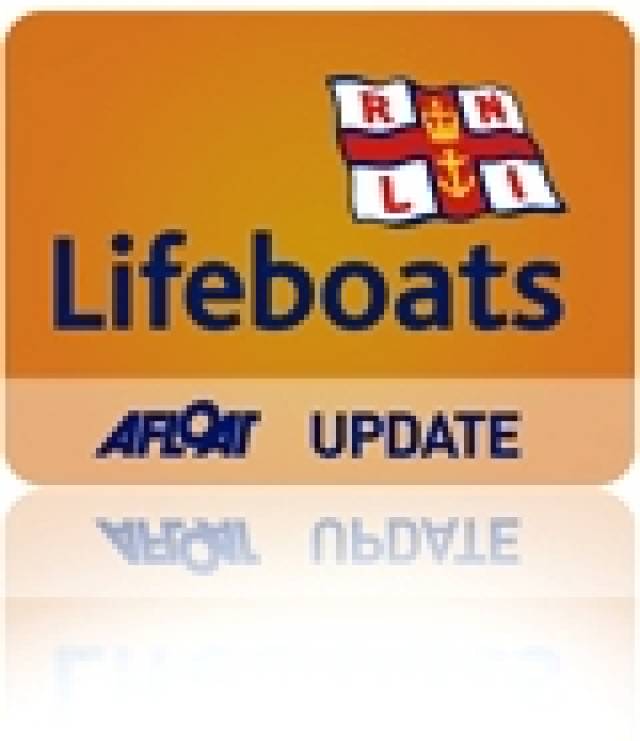#rnli – Three RNLI lifeboats from Northern Ireland and three from the Isle of Man took part in a major maritime exercise fifteen miles off the coast of Northern Ireland on Saturday (3 August 2013) to test the effectiveness and familiarisation of search and rescue techniques with multiple lifeboats over a large scale area. Belfast Coastguard coordinated the exercise from their Maritime Rescue Coordination Centre in Bangor.
The scenario involved the rapid sinking of a small passenger vessel with 30 people onboard. The lifeboats tasked to respond came from Donaghadee, Portaferry and Newcastle in Northern Ireland and Peel, Port St Mary and Port Erin on the Isle of Man.
The role of the casualties were played by lifeboat crew, search and rescue mannequins and numbered oranges. The oranges added an extra challenge for the lifeboat crews as they can be quite difficult to locate in large open seas and really test the search techniques of the volunteer lifeboat crews.
The exercise started just before 9am and continued until 12.45pm. Both all weather and inshore RNLI lifeboats took part in the scenario with a total of 34 lifeboat crew participating. Conditions on the day were challenging with a strong south west wind and moderate to rough seas.
Commenting on the exercise Gareth Morrison RNLI Divisional Operations Manager said, "These major search and rescue scenarios are of huge importance to the RNLI. Our lifeboat crews never stop training for every scenario and outcome. This weekend was an opportunity to have six lifeboat crews from different areas, work together in the event off a major incident involving a large number of casualties. These types of callouts are sadly not uncommon and every exercise to prepare the volunteer crews is welcome. "
Donaghadee RNLI Coxswain Philip McNamara who took part in the exercise added, "This was a great opportunity to work with five other RNLI lifeboats in realistic and challenging conditions. We train every week in waters normally more local to Donaghadee so this exercise allowed my crew and I to train in a less familiar environment.
Newcastle RNLI Coxswain Mark Poland also commented, "This scenario is one we hope we never have to respond to, yet it's vital we are prepared. Conditions were difficult at times - but that made it even more realistic. Every casualty was located and recovered onboard one of the six lifeboats."
The RNLI recently responded to a major incident off the Cork coast where a tall ship struck rocks and thirty people, most of them teenagers, had to be rescued quickly. Four RNLI lifeboats responded with two taking all thirty safely off the stricken vessel.
































































